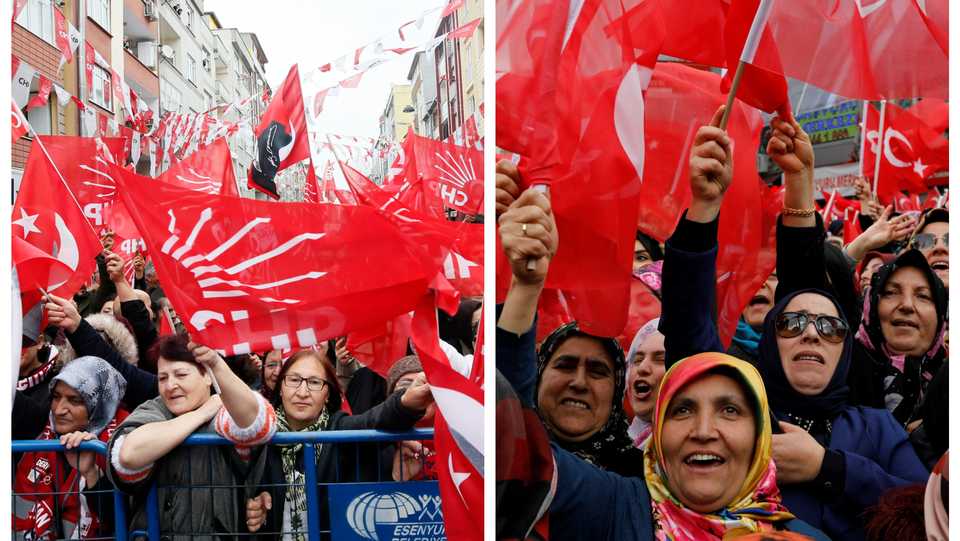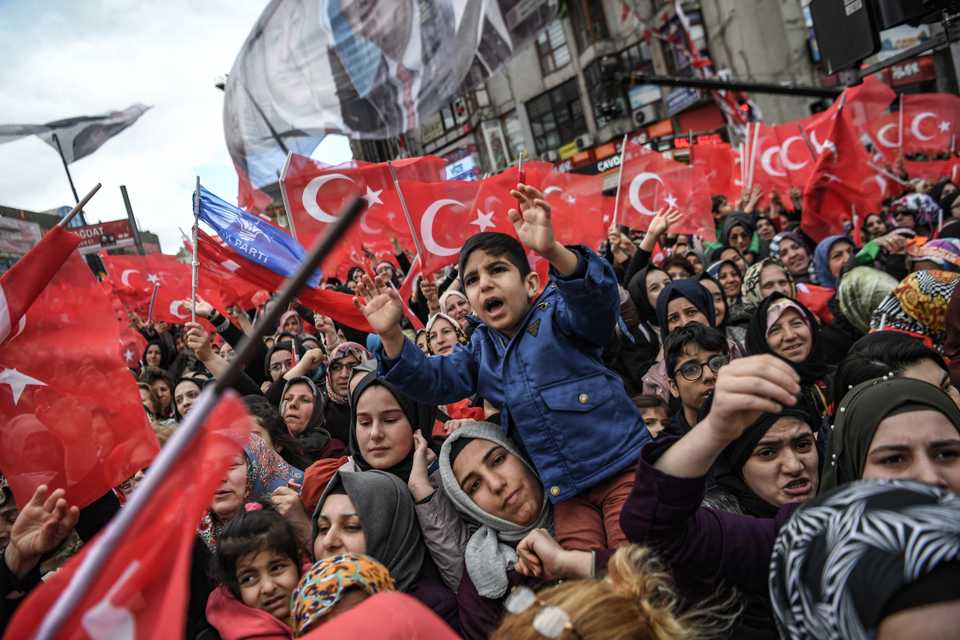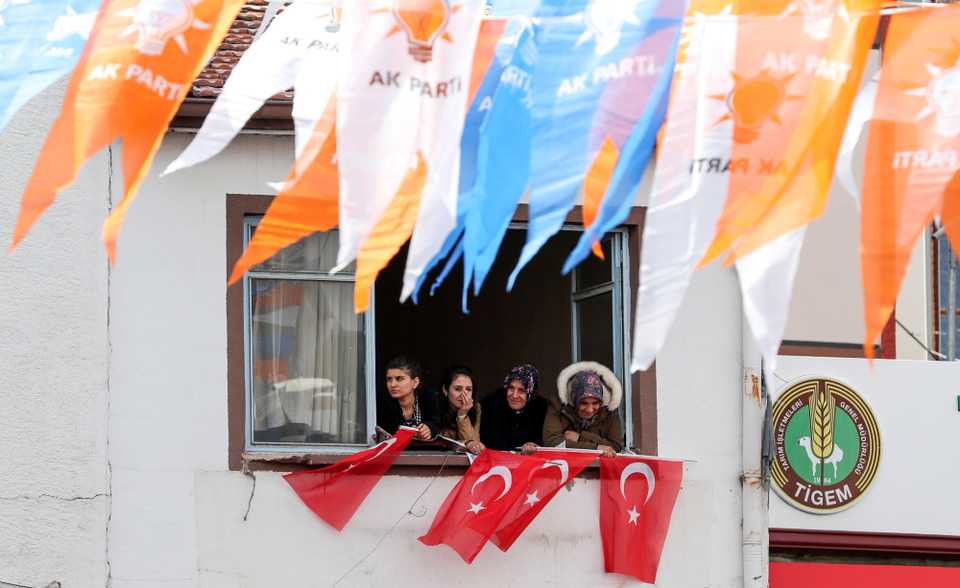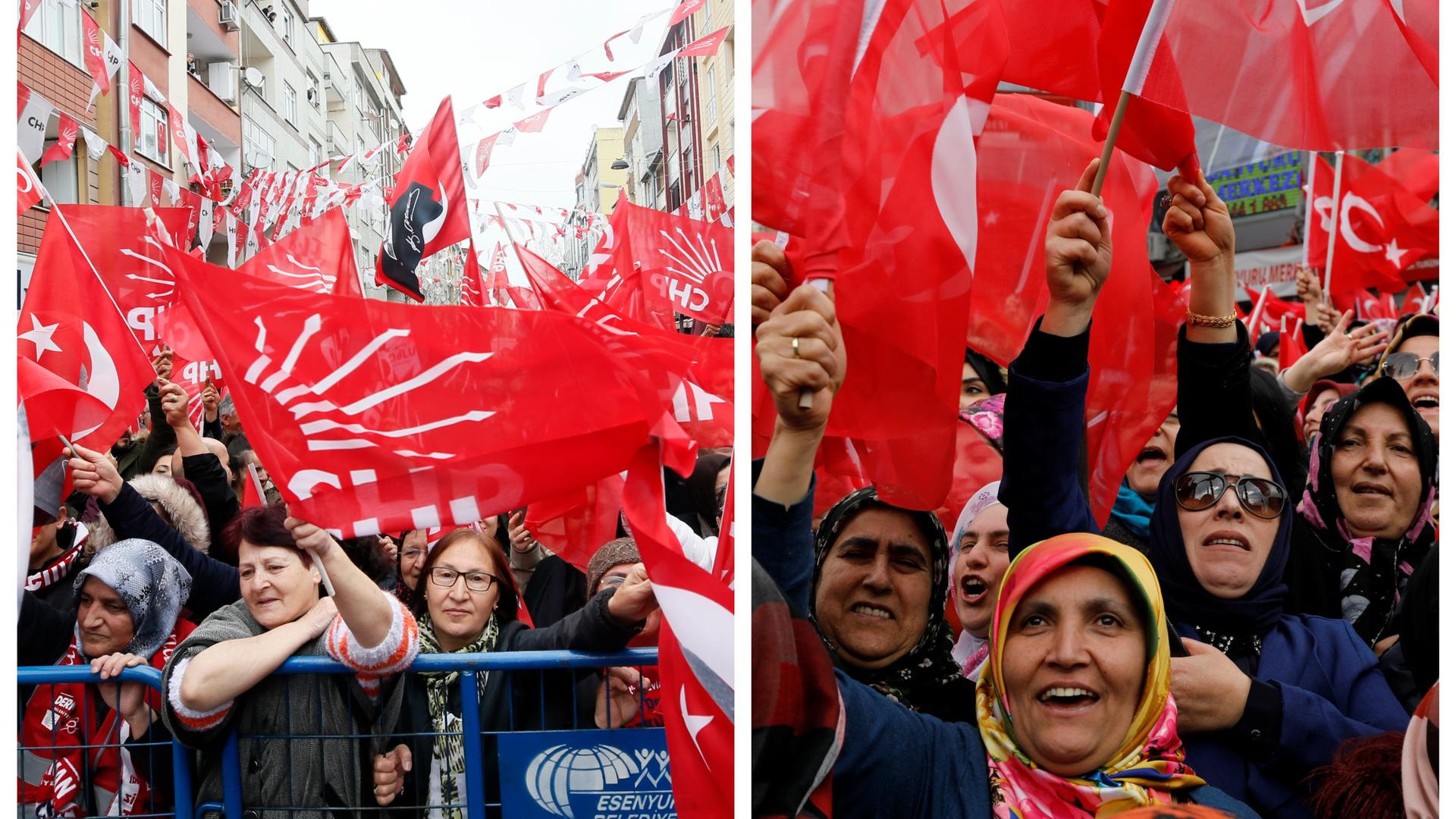
Every election season, campaign rallies swing into full force in the country of 80 million.
This time, it is a scoop of green field in Istanbul’s dusty port district of Yenikapi that blazes red with Turkish flags. Supporters in the city flock to the governing AK Party rally while those around the country are travelling just to see their favourite political leaders speak – this time Turkey’s President Recep Tayyip Erdogan, former Prime Minister Binali Yildirim and MHP leader Devlet Bahceli.
Turkey heads to the polls on Sunday for local elections after a slew of hard fought campaign rallies. This makes it the first local elections under the new presidential system, adopted in an April 2017 referendum.
There is an almost festive air at the rally, a far cry from the sombre, nervous mood that hangs over the country the day of the election. A skip and a hop away from the fluttering crimson flags, families lie sprawled on the grass, soaking up the sun, smoking and drinking tea. The vibe is something akin to being at the Reading Festival or Coachella, only G-rated.
This election season though, something is a little different around Istanbul. Accompanying the cluster of party tents in Bestikas, Istanbul’s student district, is a makeshift stall selling vegetables at low prices. On the menu? Potatoes, tomatoes and peppers that the Turkish government is selling at roughly half the price of regular markets.
These attempts to woo voters aren’t new in Turkey. Election campaigning makes its presence felt in every aspect of a civilian’s life. Banners drape the skyline while politically laden tents pop up in bustling spots in the city – all blaring singalong catchy music, handing out vividly coloured pamphlets and handing out gifts. Across Istanbul, trucks thread through the city blaring election music, discernible for a fleeting moment before they motor off into traffic. This has pared down significantly in recent years.
“In the past, election times were really bad because all party buses used to travel in the city with their loud speakers,” Mehmet, 31 told TRT World.
“But now, it is almost invisible and I like it.”

This year, the governing AK Party launched an “environmentalist campaign” ensuring that all parties use considerably fewer banners, flyers, and other printed materials during their campaign. They opted instead to distribute cotton bags with pictures and party logos on them.
Candidates also took to social media for campaigning – like the Iyi Party – while some candidates like AK Party’s Erdogan were interviewed on television.
At the rally, Semiha, 29 is standing at the fringes of the crowd with a group of friends. When Erdogan comes on stage sporting sunglasses belting out a campaign song, she cheerily jumps up and down. Her excitement is palpable. She tells TRT World that she has been to numerous meetings with friends and has always supported AK Party and MHP.
“It will be a great election, it will not be like what people are projecting. The people’s alliance will win in unexpected places,” Semiha, 29 told TRT World.
This loyalty is apparent across the crowd.
“I have been to every last rally and I will continue to come,” Sabahat Hayirli, 67, tells TRT World.

And this political loyalty seeps down past the individual to families.
Yagmur, a nine-year-old girl decked in a pink princess dress, is at this rally just to see Erdogan speak.
“I came to see Erdogan dede for the first time,” Yagmur tells TRT World.
“I love Erdogan dede a lot.”
Dede is a Turkish term for grandfather.
But for others, relationships could get particularly between tense during election time.
“During elections, I feel different from other times. Because there is an election psychology that politicises me. Daily relations with colleagues and friends may be deteriorated as politicians slam each other,” Yuksel, 24 told TRT World.
Mehmet has seen this friction play out.
This is not always the case, though. “My parents and I have the same political views but I know some of my friends have different ideas than their parents,” Mehmet said.










Discussion about this post